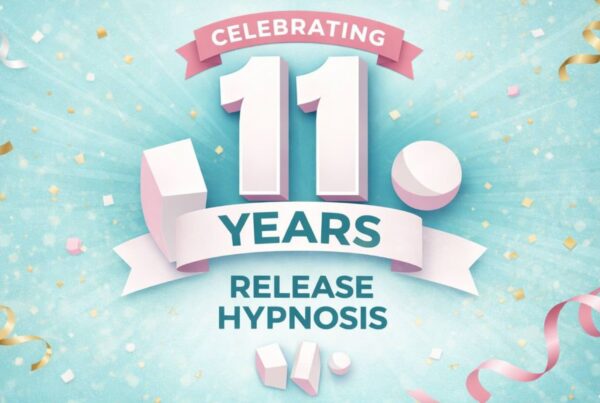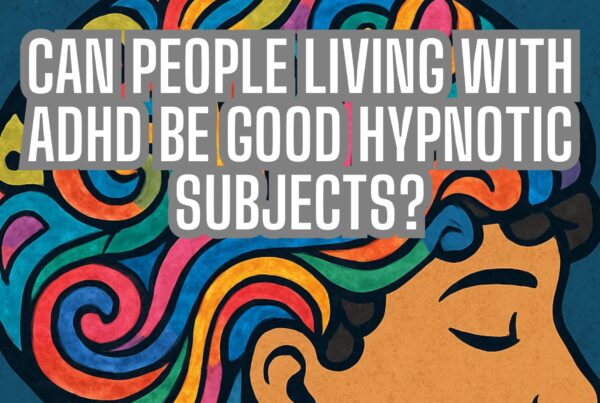The Dangers of Hypnosis and False Memories
It isn’t uncommon that, every once in a while, I’m approached by someone with what they call ‘an unusual request’. Some people feel like there is a memory that is missing that needs to be found. Or that there is a hint of a memory but they need to be sure. Their belief is that hypnosis will help them to reclaim it. What they fail to understand is that hypnosis can also create false memories. In this blog, we look to explore the psychological and legal risks of hypnosis-induced false memories and the implications of memory distortion.
What is Hypnosis?
Hypnosis is a trance-like state where individuals experience heightened concentration, focus, and suggestibility. Historically, hypnosis dates back to the 18th century, popularised by Franz Mesmer, who believed in “animal magnetism.” Over time, it evolved into a recognised psychological tool used to manage pain, reduce anxiety, and alter undesired behaviours.
In therapeutic settings, hypnosis can be employed to access suppressed emotions or memories. However, its effectiveness lies in the delicate balance between suggestibility and control. While some view it as a gateway to the subconscious, others criticise its susceptibility to manipulation, particularly when recalling past events.
Understanding Memory Recall
Memory is not a flawless recording of past experiences. Instead, it is a complex reconstruction process involving encoding, storage, and retrieval of information. Memories are shaped by emotions, perceptions, and context, which can evolve over time. This dynamic nature makes memory highly susceptible to distortion.
When individuals attempt to recall events under hypnosis, the reconstruction process becomes even more malleable. Hypnotic states amplify suggestibility, increasing the likelihood of altering or misinterpreting stored information. The result? Memories that feel real but may bear little resemblance to actual events.
The Link Between Hypnosis and Memory
Hypnosis is often employed as a means of unearthing buried memories, particularly in therapeutic and investigative contexts. Under hypnosis, individuals may experience heightened focus and relaxation, enabling them to access thoughts and feelings they might not consciously remember.
However, this heightened state of suggestibility is a double-edged sword. While it can aid in emotional healing, it also makes individuals vulnerable to suggestion. Subtle cues from a hypnotist, even unintentional ones, can shape the narrative of recalled events, leading to distorted or fabricated memories. This phenomenon is particularly dangerous when hypnosis is used to recover memories of trauma or abuse.
False Memories: An Overview
False memories are fabricated or distorted recollections of events that feel as vivid and real as genuine ones. These can range from minor inaccuracies to entirely fabricated scenarios, such as recalling a childhood trauma that never occurred. False memories often arise from external influences, such as leading questions or suggestive therapy techniques.
The consequences of false memories can be profound. Individuals may suffer emotional distress, strained relationships, or even legal battles based on events that never happened. The risks are magnified when hypnosis is used, as the suggestible state increases the likelihood of implanting such memories.
Mechanisms Behind False Memories
Several psychological mechanisms contribute to the formation of false memories, particularly in hypnosis:
- Suggestibility: Hypnosis heightens suggestibility, making individuals more receptive to external influences. This vulnerability means that leading questions or subtle cues can shape their recollections.
- Imagination Inflation: Vividly imagining an event under hypnosis can lead individuals to misinterpret the imagined scenario as a genuine memory.
- Misinformation Effect: Exposure to incorrect details before or after hypnosis can alter the individual’s memory of an event.
Research has consistently shown that false memories can be implanted with relative ease in susceptible individuals, particularly under conditions that mimic hypnosis.
Therapeutic Hypnosis and Its Risks
Hypnosis has proven benefits in therapy, such as managing anxiety, phobias, and chronic pain. However, its application in memory retrieval carries significant risks. Therapeutic hypnosis often involves deep relaxation and heightened focus, conditions that amplify the individual’s suggestibility.
Therapists using hypnosis to recover memories may unintentionally plant suggestions, leading to the formation of false memories. These “recovered” memories can become entrenched in the individual’s psyche, causing emotional distress and potentially influencing their behaviour and relationships.
Legal Implications of False Memories
False memories have had far-reaching consequences in the legal arena. Hypnotically recovered memories have been used as evidence in court, often leading to wrongful accusations and convictions. The suggestibility inherent in hypnosis raises serious questions about the reliability of such testimonies.
In several high-profile cases, individuals have been convicted based on memories recovered under hypnosis, only for subsequent evidence to reveal their innocence. These miscarriages of justice highlight the dangers of relying on hypnotically retrieved memories without supporting evidence.
This may also explain why many hypnotherapists will not be willing to take on requests that involve memory recall.
Hypnosis and False Memories
Hypnosis, while a valuable therapeutic tool, is fraught with risks when used for memory recall. The dangers of false memories, distorted recollections, and the legal and emotional consequences of such errors cannot be overstated.
Understanding these risks is essential to ensure that hypnosis is used responsibly and ethically. By recognising the limitations of memory and the power of suggestion, therapists and individuals alike can navigate the complexities of hypnosis with greater caution.
What is Memory?
I highly recommend watching this short Netflix documentary that explains research on memory, it’s purpose, and how it is not accurate.
Release Hypnosis Melbourne Hypnotherapy
Since 2015, Lawrence Akers has been working under the name Release Hypnosis offering Hypnotherapy and ACT based work to the people of Melbourne or an online service. Based on St Kilda Rd, Release Hypnosis is an easy and convenient location to get to and accessible by the ANZAC station train and tram stop. Release Hypnosis can help with a wide range of presenting issues, and I offer a free 30 minute no obligation discovery call for those who are unsure if hypnotherapy is the right way forward for them.
Book Your FREE 30 Minute Consultation With Release Hypnosis NOW!
You may also like to read:
Hypnotherapy: A Guide to Healing Through the Subconscious
The Neuroscience of Gratitude and Effects on the Brain: Unlocking Mental Resilience
Best Hypnotherapy Resources 2024: Release Hypnosis Top Blogs
What Is The Success Rate of Hypnosis?
Release Hypnosis Melbourne Hypnotherapy is accessible for people in: Abbotsford, Armadale, Albert Park, Balwyn, Bentleigh, Black Rock, Box Hill, Brighton, Brunswick, Bulleen, Bundoora, Camberwell, Canterbury, Carnegie, Caulfield, Chadstone, Cheltenham, Clayton, Coburg, Collingwood, Deer Park, Doncaster, Elsternwick, Eltham, Elwood, Epping, Essendon, Fairfield, Fitzroy, Footscray, Glen Iris, Glen Waverley, Glenhuntly, Greensborough, Hampton, Hawthorn, Heidelberg, Highet, Ivanhoe, Kew, Kooyong, Lalor, Laverton, Lower, Plenty, Macleod, Malvern, Middle Park, Moonee Ponds, Melbourne, Moorabbin, Mount Waverley, Murrumbeena, Northcote, Oakleigh, Ormond, Parkville, Pascoe Vale, Port Melbourne, Prahran, Preston, Richmond, Rosana, Sandringham, South Yarra, South Melbourne, Spotswood, St Albans, St Kilda, Surrey Hills, Templestowe, Thornbury, Toorak, Tullamarine, Williamstown, Yarraville, North Melbourne, Windsor, East Melbourne, Melbourne, Melbourne CBD, Melbourne 3004








